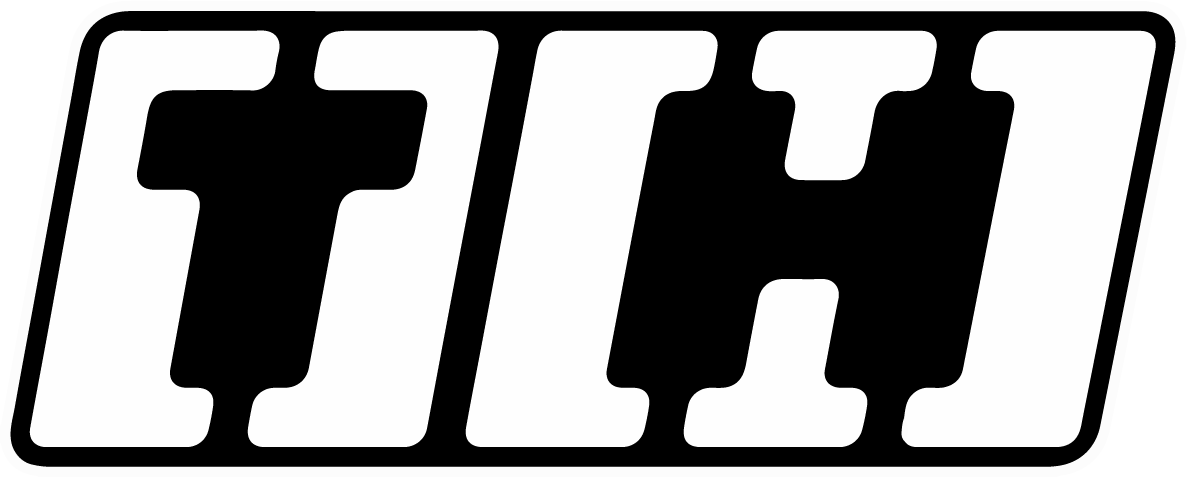How Much Do Pharmacy Technicians Make in 2025?
When you purchase through links on my site, I may earn an affiliate commission. Here’s how it works.
Table of Contents Show
If you’re like most people considering a career in healthcare, you’re probably wondering about the bottom line: “How much will I actually earn as a pharmacy technician?” After all, passion and purpose are great—but you can’t exactly pay your rent with passion alone.
The National Average: What’s a Typical Salary?
Let’s cut straight to the chase. According to the Bureau of Labor Statistics (BLS)’s most recent data collection from May 2023 , the median annual salary for pharmacy technicians in the US sits around $40,300, which breaks down to roughly $19.37 per hour. Keep in mind, this is the median—meaning half earn more, half earn less. It kinda works like an “income thermostat,” set right in the middle of the salary range.
But median doesn’t tell the whole story. Let’s take a quick look at the extremes:
The lowest 10 % earned less than $32,720 annually.
The highest 10 % pulled in over $57,130 per year.
That’s quite a spread! It’s similar to the difference between ordering from the dollar menu and dining at a nice steakhouse—both fill you up, but the experiences are pretty different. Factors such as where you live, your experience, qualifications, and even your employer can heavily influence where you land in this spectrum. (We’ll have a closer look at these factors shortly.)
To double-check those numbers, other trusted sources offer pretty similar figures:
Salary.com (March 2025) puts the average salary for certified pharmacy technicians around $40,300.
Talent.com pegs the average slightly higher at $41,580 per year.
So, realistically, you’re looking at roughly $40,000–$42,000 annually as your baseline. Keep in mind, though—these are just averages. Your specific circumstances can definitely tip the scale.
How Geography Affects Your Earnings
Ever hear the phrase “location is everything” in real estate? Well, turns out it applies to pharmacy technicians, too. Your paycheck can vary dramatically depending on the state—or even city—you work in.
Check out some states offering the highest salaries, according to the latest BLS data:
California: $55,710
Washington: $55,390
District of Columbia: $54,030
Oregon: $50,440
Alaska: $49,810
These states typically have a higher cost of living, but they also often boast thriving healthcare industries and bustling pharmaceutical sectors—meaning there’s a strong demand for pharmacy techs.
Now, for comparison’s sake, let’s peek at the other end of the spectrum:
West Virginia: $37,090
Arkansas: $36,240
Yes, the salaries are lower here. But—and it’s a big but—your dollars usually stretch further. Earning a bit less but spending way less on rent and groceries might actually leave you ahead at the end of the month.
It’s the classic trade-off: earning more but spending more versus earning less but living cheaper. At the end, I guess it’s about balance and personal preference.
For clarity, here’s a quick snapshot of median salaries across the US:
| State | Median Annual Salary |
|---|---|
| Alabama | $36,190 |
| Alaska | $48,820 |
| Arizona | $45,260 |
| Arkansas | $36,240 |
| California | $49,880 |
| Colorado | $46,840 |
| Connecticut | $39,130 |
| Delaware | $39,530 |
| District of Columbia | $46,520 |
| Florida | $38,560 |
| Georgia | $37,920 |
| Hawaii | $44,600 |
| Idaho | $43,980 |
| Illinois | $39,940 |
| Indiana | $38,690 |
| Iowa | $39,290 |
| Kansas | $37,960 |
| Kentucky | $37,100 |
| Louisiana | $37,670 |
| Maine | $37,550 |
| Maryland | $38,990 |
| Massachusetts | $45,220 |
| Michigan | $39,210 |
| Minnesota | $47,100 |
| Mississippi | $37,630 |
| Missouri | $37,300 |
| Montana | $43,050 |
| Nebraska | $38,400 |
| Nevada | $44,860 |
| New Hampshire | $39,160 |
| New Jersey | $38,380 |
| New Mexico | $42,010 |
| New York | $42,000 |
| North Carolina | $38,710 |
| North Dakota | $47,540 |
| Ohio | $38,290 |
| Oklahoma | $36,330 |
| Oregon | $48,650 |
| Pennsylvania | $36,910 |
| Rhode Island | $36,480 |
| South Carolina | $37,960 |
| South Dakota | $39,480 |
| Tennessee | $37,380 |
| Texas | $41,990 |
| Utah | $46,010 |
| Vermont | $37,830 |
| Virginia | $39,800 |
| Washington | $53,070 |
| West Virginia | $37,090 |
| Wisconsin | $39,360 |
| Wyoming | $44,490 |
(Data: BLS, May 2023)
City vs. Country: Is Big City Life Really Worth the Bigger Paycheck?
When it comes to pharmacy tech salaries, we’ve talked about states—but not all parts of a state are the same. Ever wondered why your cousin living in downtown San Francisco is always complaining about rent, even though he earns twice what you do in a rural town? Yeah, same paycheck, different expenses. Let’s unpack how the city-versus-country divide impacts your salary potential.
Metro Areas Mean More Money (Usually)
It’s no surprise that pharmacy tech salaries are usually higher in major cities. After all, bigger cities typically mean higher demand, more patients, and—yep—higher living costs. Take a look at some of the highest-paying metro areas for pharmacy techs:
| Metropolitan Area | Median Annual Salary |
|---|---|
| San Francisco–Oakland–Hayward, CA | $61,480 |
| San Jose–Sunnyvale–Santa Clara, CA | $59,800+ |
| Seattle–Tacoma–Bellevue, WA | $55,000+ |
(Data: BLS, May 2023)
Clearly, if you’re aiming for the highest salary, California’s tech-savvy metros top the list. (Is it just me, or does California always seem to find a way onto every “highest-paying” list?)
But—as I mentioned earlier with the states—higher salaries come with a catch: cost of living. Sure, San Francisco pharmacy techs might earn around $60K—but with average rent prices making even the bravest budget-conscious millennial cringe, that paycheck doesn’t stretch as far as you’d think.
Big Cities in Average States Can Still Pay Well
Interestingly, even states with relatively average pay can surprise you. Take Texas, for example. On average, the Lone Star State isn’t topping any salary charts for pharmacy techs—but zoom into the big cities, and it’s a whole different story. Houston, Dallas, and Austin typically offer higher salaries compared to smaller towns, thanks to busier pharmacies, hospitals, and larger healthcare networks.
What Determines Your Paycheck?
Okay, so we’ve already covered how geography can seriously move the needle on your paycheck as a pharmacy technician. But location isn’t the only player here. In fact, several other factors can bump your salary up—or, unfortunately, hold it down. Let’s have a closer look at the big ones:
1. Experience
When you’re starting out as a pharmacy technician, you have the foundational skills needed for the job, but you’re still gaining practical experience and refining your expertise. Over time, as you develop greater efficiency, accuracy, and a deeper understanding of pharmacy operations, your value to employers increases—often leading to higher compensation.
Here’s how that experience translates into dollars and cents:
Entry-level (under 1 year): around $39,101/year
Early career (1–2 years): jumps slightly to about $39,684/year
Mid-level (5–8 years): climbs noticeably to roughly $42,066/year
By the time you’ve logged five years, your salary can be about $9,000 higher than when you first started. Think about it—every year of experience is essentially boosting your earning power, proving the long-term payoff of sticking with it.
2. Certification
I get it—certifications can seem like just another piece of paper. But here’s the thing: certification matters. Like, a lot. Specifically, certification from the Pharmacy Technician Certification Board (PTCB) can be your ticket to higher pay and better job security.
Well, here’s why employers love it:
Certification is essentially the industry’s stamp of approval—showing that you’ve mastered the skills and knowledge necessary for the job.
Employers frequently prioritize certified techs over non-certified candidates (often rewarding certified hires with higher starting salaries).
In many states, certification isn’t optional—it’s legally required.
3. Education and Training: Is It Worth It?
Most pharmacy techs start with just a high school diploma or GED. And yes, you can absolutely have a successful career without further education. But completing a specialized pharmacy tech program or earning an Associate’s degree can give you a competitive edge—especially for higher-paying roles in hospitals or specialized healthcare settings.
Now, will an Associate’s degree instantly transform your paycheck overnight? Probably not dramatically. But it can certainly open doors down the road, putting you first in line for promotions or specialized roles that do pay significantly more.
I personally like to think of education like building a strong foundation for a house—sure, you can build directly on the ground, but investing a little extra upfront will usually pay off long-term (and you won’t regret the stability when things get shaky).
4. Work Environment
Believe it or not, the setting you’re working in has a big impact on your salary. That’s why I’ve prepared a quick breakdown to illustrate the differences:
| Work Environment | Median Annual Salary |
|---|---|
| Outpatient Care Centers | $61,080 |
| Research & Development Services | $56,450 |
| General Medical & Surgical Hospitals | $49,810 |
| General Merchandise Retailers | $44,770 |
| Health & Personal Care Retailers | $40,170 |
(Data: BLS, May 2023)
Surprised? Hospitals typically pay pharmacy techs more because the work is usually more demanding—like handling sterile preparations or chemotherapy medications. In retail pharmacies, you might have fewer specialized tasks (and typically, fewer zeros on your paycheck), but you might enjoy better work-life balance or flexibility. It’s always a trade-off.
Don’t Ignore the Employee Benefits
I always say, salary numbers alone don’t tell the full financial story. It’s like buying a house without checking what’s included—imagine getting that new house and realizing there’s no kitchen sink. Benefits are your financial kitchen sink, and they matter—a lot.
Common perks pharmacy technicians typically receive include:
Health insurance (medical, dental, vision)
Paid time off (PTO) for vacations or personal days
Sick leave (because getting sick shouldn’t make you broke)
401(k) plans with employer matching—basically free money toward your retirement
Employee discounts, tuition reimbursement, or professional development programs
All these perks significantly boost your total compensation package. Personally, when I worked my first full-time job, I vastly underestimated how valuable a decent benefits package could be. Don’t make the same mistake.
Pharmacy Technician Job Outlook
At this point, you might wonder “Will pharmacy tech jobs even be around in 10 years?” Good news: the outlook is pretty strong.
The Bureau of Labor Statistics projects pharmacy tech employment to grow 7 % from 2023 to 2033, faster than the average occupation. This means roughly 47,400 new job openings each year—driven primarily by an aging population and increasing prescription demands. Well, let’s face it, grandma’s medication cabinet isn’t exactly getting emptier with age.
In other words, pharmacy techs aren’t going out of style anytime soon. It’s a career path offering real stability in a world where “job security” feels more like an urban legend.
Final Thoughts: Is Becoming a Pharmacy Tech Right for You?
Here’s the deal: pharmacy technicians (as of 2025) earn a median salary of around $40,300, but that’s just a starting point. Factors like your location, city size, experience, certifications (like the PTCB), education, and workplace environment can all significantly influence how much you actually take home.
Plus, don’t forget those sweet employee benefits—they can boost your real earnings more than you’d think. And with a solid growth outlook, becoming a pharmacy tech is one of those rare paths offering both stability and genuine opportunity for advancement.
If you’re looking for a career that delivers dependable income, plenty of room to grow, and the chance to truly help others—becoming a pharmacy tech just might check all your boxes.
But now, I’d love to hear from you! Are you currently working as a pharmacy tech, or considering this career? What factors matter most to you when evaluating a job—salary, benefits, work environment, or something else? Drop your thoughts in the comments below!
And if you’re interested in more finance-focused career insights, salary breakdowns, and smart money tips, be sure to subscribe to my newsletter so you never miss an update.
Thanks a lot for reading; have a nice day!
FAQ
-
As of May 2023, the median annual salary for pharmacy technicians in the U.S. is around $40,300, or roughly $19.37 per hour, according to the Bureau of Labor Statistics (BLS). However, salaries can vary significantly based on experience, location, certifications, and work setting.
-
Yes! California, Washington, Alaska, Oregon, and the District of Columbia tend to offer the highest pharmacy tech salaries, with some positions paying over $50,000 per year. However, these states often have a higher cost of living, which is something to consider when comparing salaries.
-
In most cases, yes. Major metropolitan areas, such as San Francisco, San Jose, and Seattle, offer higher salaries due to higher demand for healthcare services and a generally higher cost of living. That being said, higher salaries in cities don’t always mean more disposable income—housing and everyday expenses can eat into those extra earnings.
-
Like most careers, experience plays a major role in salary growth. Entry-level pharmacy techs typically start around $39,000 per year, but after 5 to 8 years of experience, earnings can increase by as much as $9,000 annually. Pharmacy technicians with extensive experience in specialized roles, such as hospital or research settings, often earn even more.
-
Absolutely. Certification—especially from the Pharmacy Technician Certification Board (PTCB)—can lead to higher starting salaries, better job opportunities, and more potential for raises over time. Some states even require certification to work as a pharmacy technician, making it a valuable investment in your career.
-
A high school diploma or GED is typically the minimum requirement to become a pharmacy technician, but completing a pharmacy technician training program or earning an Associate’s degree can make you a more competitive candidate. While the immediate salary increase may not be dramatic, these qualifications can lead to better job prospects, higher pay in the long run, and opportunities for advancement.
-
Many full-time pharmacy technicians receive comprehensive benefits packages, which may include:
Health insurance (medical, dental, and vision)
Paid time off (vacation and sick leave)
401(k) plans with employer matching
Employee discounts on medications and other pharmacy items
Tuition reimbursement for further education or certifications
These benefits can add significant value beyond just the base salary.
-
Generally, pharmacy technicians working in hospitals, outpatient care centers, and research facilities earn more than those in retail or chain pharmacies. For example, hospital-based pharmacy techs have a median annual salary of $47,940, while outpatient care centers offer some of the highest wages, averaging $61,080 per year.
-
If you’re looking for job stability, growth potential, and a relatively short educational path, becoming a pharmacy technician can be a great choice. The BLS projects a 7 % job growth rate from 2023 to 2033, meaning steady demand for pharmacy techs. Plus, experienced technicians can move into specialized roles or advance into higher-paying positions within healthcare.
MOST POPULAR
LATEST ARTICLES














